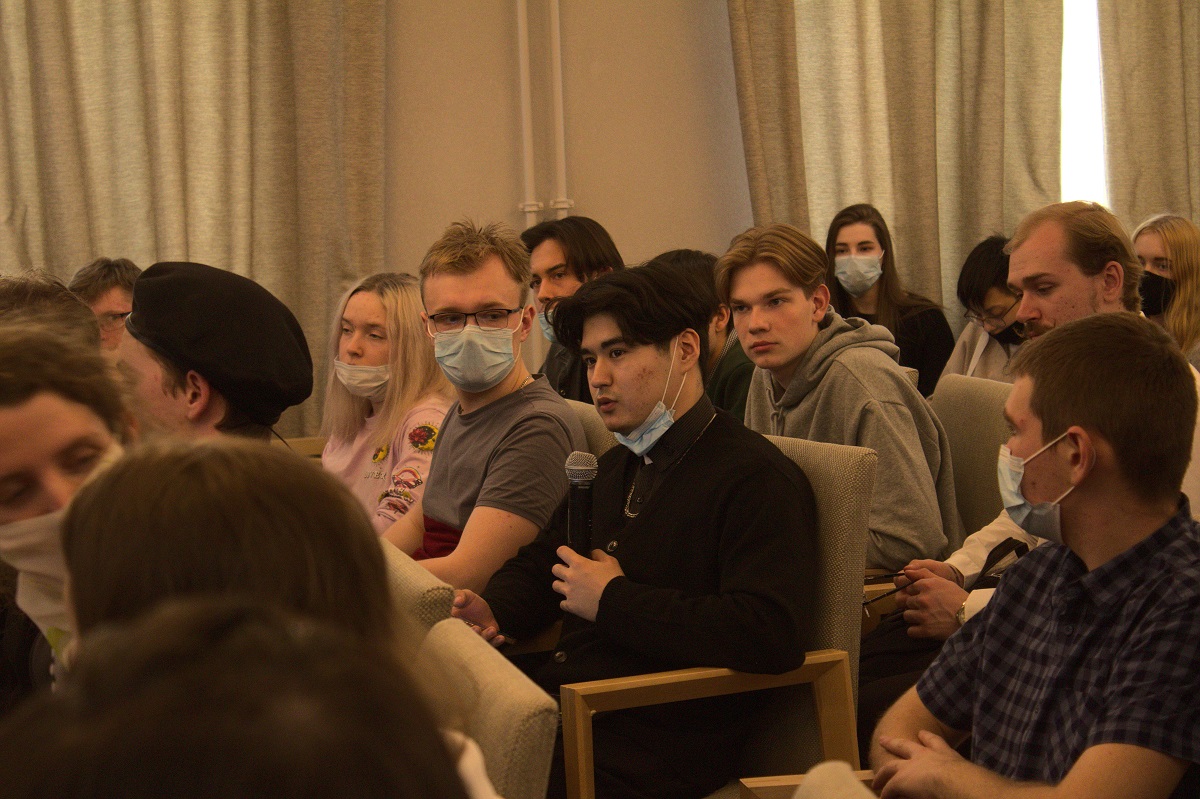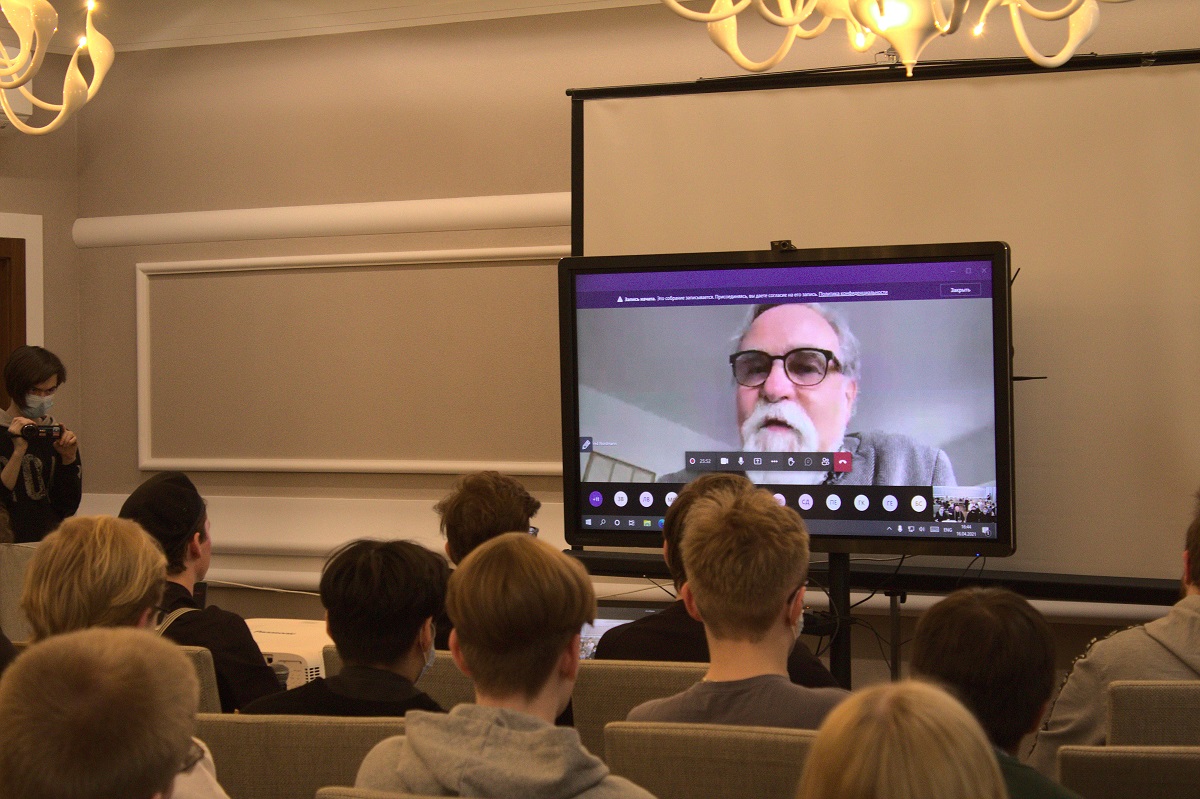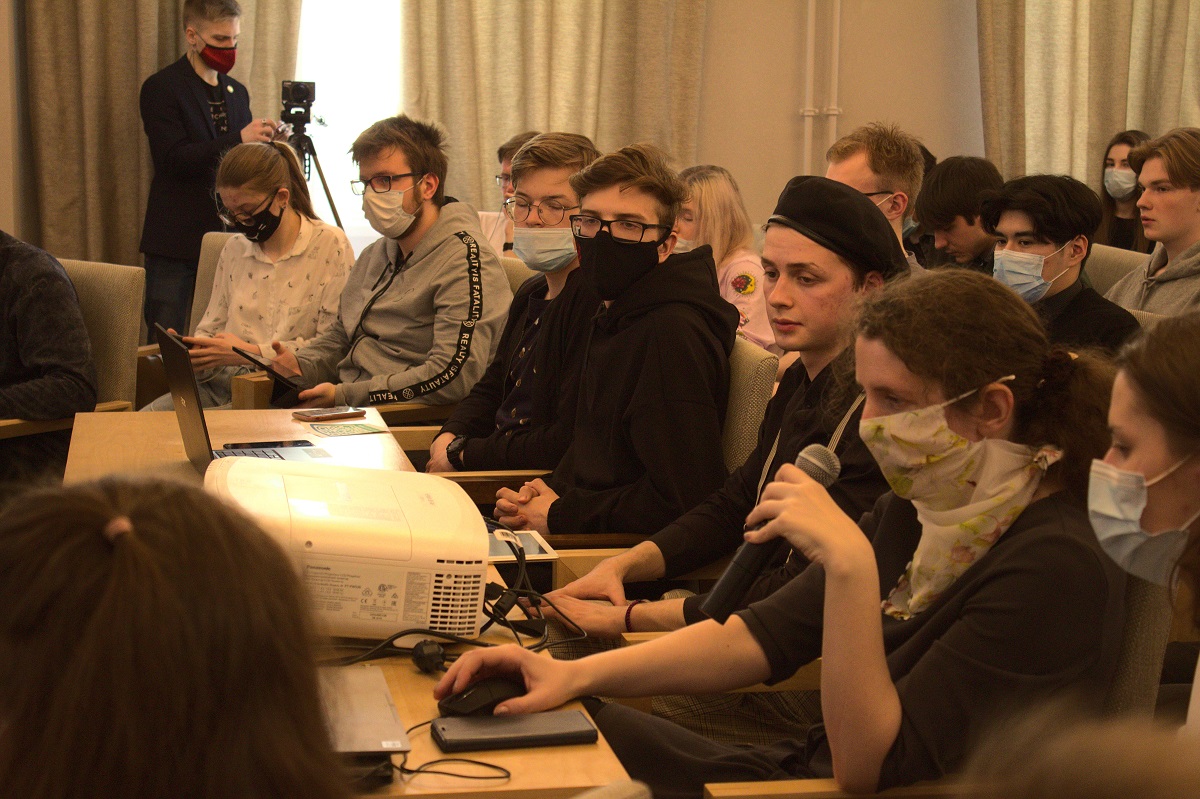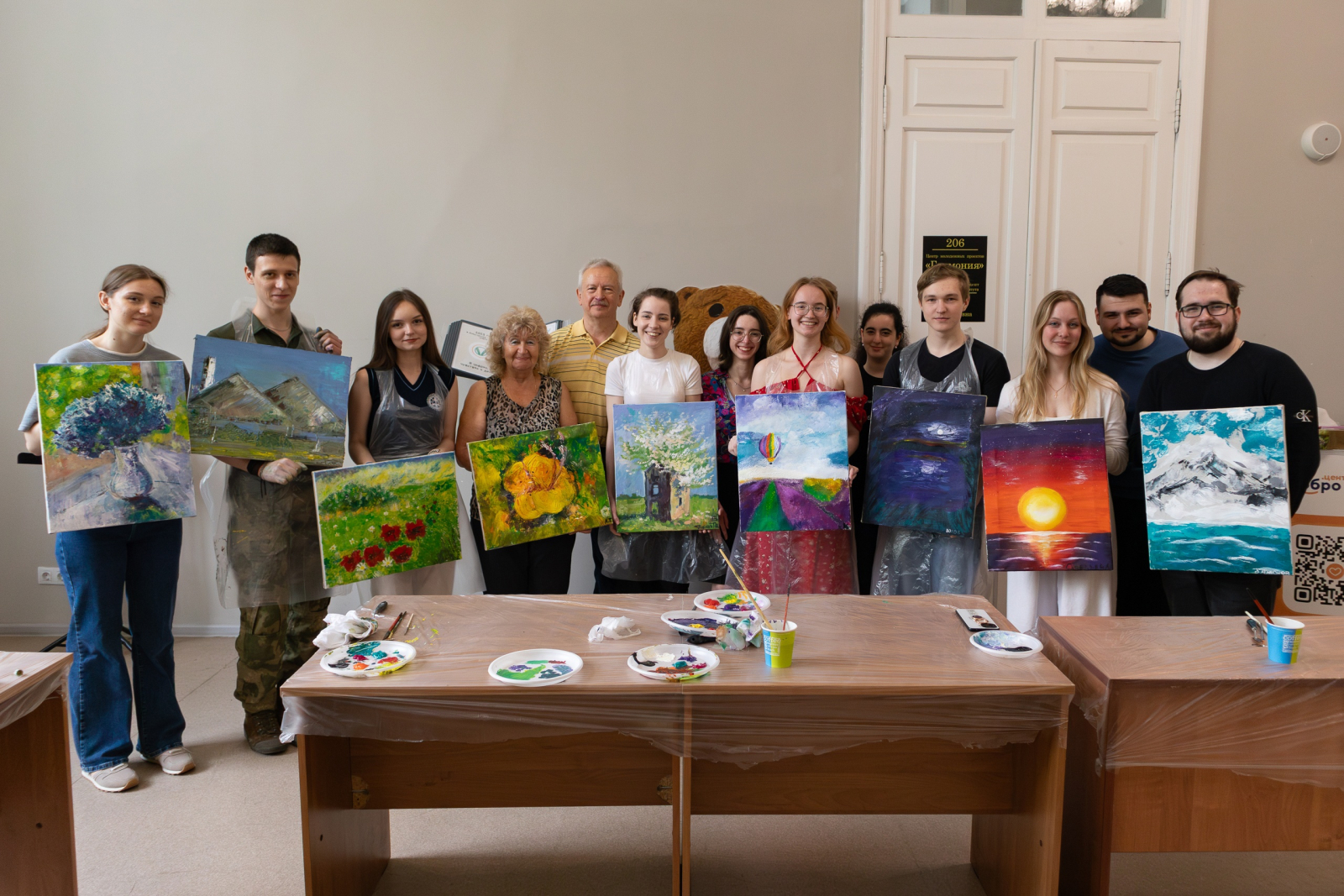Арт-клуб Политеха провёл дискуссию «AI today and tomorrow»
(4).jpg)
16 апреля состоялась дискуссия «AI today and tomorrow». Она была посвященна искусственному интеллекту. В ней приняли участие профессор Дармштадского университета Альфред Нордманн, а также специалисты и студенты СПбПУ.
On 16 april was held AI discussion, which was attended by specialists and students of SPbPU, as well as Professor of the University of Darmstadt Alfred Nordmann.
Мероприятие вызвало живой интерес не только у участников-профессионалов, но и у студентов. Предоставим слово последним:
This week I attended a live discussion on artificial intelligence and its capabilities, in which Alfred Nordmann, a professor from Darmstadt, participated. During the entire discussion, he directed the conversation from one interesting topic to another, while managing to answer many questions posed by the students who came. For all the short time, the professor managed to explain to us that the main essence of AI lies in its self-learning and the ability to analyze the data flow. A good example of this was the video shown by the organizer of this event, Byleva Daria Sergeevna, in which it was shown how artificial intelligence is able to analyze the situation when playing hide and seek. Also, me and my classmate conducted a survey, where the participants were asked to determine who created the picture, AI or a person.
The poll results were, as expected, mixed. We have seen pictures with both a critically small number of correct answers and a majority of correct ones. Also, for some pictures, the opinion of the respondents was divided equally. Based on the results of this survey, we came to the conclusion about the extraordinary development of AI in the field of art. An art critic also took part in the discussion, who spoke about an amazing exhibition created by AI and humans. I look forward to the fall, when Professor Alfred arrives, and there will be an opportunity to attend such a conference in full face-to-face format.
- Елена Парубова (Elena Parubova)

16 апреля мне посчастливилось посетить дискуссию об Искусственном интеллекте "AI today and tomorrow".
Конечно, перед самим мероприятием у меня были какие-то ожидания: я думала, разговор будет вестись в основном о применении нейросетей в будущем. Поскольку меня саму весьма интересует проблематика возможностей ИИ (в каких сферах ИИ сможет полностью заменить человека; есть ли области человеческой деятельности, которые нельзя доверить машине; есть ли границы возможностей ИИ, или их возможности безграничны), надеялась присутствовать при обсуждении именно будущего нейросетей (то самое "tomorrow").
Однако оказалось, что не все до конца понимают даже возможности ИИ в настоящем, что уж говорить о будущем, поэтому упор был в основном на “AI today”. Как показал опрос, предусмотрительно проведенный организаторами дискуссии, большинство участвующих в опросе считают, что нейросети не могут работать вне написанных программистами алгоритмов. В то же время до сих пор широко распространено «очеловечивание» искусственного интеллекта (скорее всего, это вызвано словом «интеллект»): задавались вопросы о наличии у ИИ чувств, эмоций, о возможности отношений с ним/любви к нему.
К счастью, на дискуссии в качестве приглашенного гостя присутствовал специалист в этой области - профессор Альфред Нордманн. Он терпеливо объяснил что это не так, что также невозможна ситуация обращения машины к своему создателю с вопросами о смысле ее жизни (хотя мы часто видим это в кинематографе). Он считает, что отсутствие у ИИ чувств - это его преимущество над человеком, как раз благодаря этому ИИ может быть более эффективен во многих областях.
Больше всего мне понравилось выступление Натальи Ершовой, которая на конкретном примере показала, как используются ИИ уже сегодня. Судя по показанным нам работам, хотя бы в области живописи ИИ ни сколько не уступают человеку.
Подводя итоги, могу сказать, что, несмотря на ограниченное время и языковой барьер, дискуссия получилась невероятно полезной и познавательной. С нетерпением жду следующего года, потому что профессор обещал приехать лично - хотелось бы продолжить эту увлекательную беседу и задать все незаданные вопросы!
- Александра Богдашевская

On April 16, 2021, a conference was held with the participation of the German professor Alfred Nordmann on the topic "AI today and tomorrow", which I managed to attend. During the conference, all participants had the opportunity to communicate with the professor and find out his opinion on various issues in the field of artificial intelligence.
I would like to note that this was not just a conversation. Everyone who asked their questions tried to illustrate them graphically, which undoubtedly attracted the attention of the audience even more. The professor himself has also repeatedly illustrated his thoughts on the future development of AI. We were shown a presentation in which the professor commented on various points of view on the further development of artificial intelligence using the examples of films. Alfred Nordamann himself is optimistic about the further development of artificial intelligence and is confident that humanity will be able to control the development of this technology. Although, in my opinion, if the question is raised about the possibility of self-development of AI, then the capabilities of AI can be significantly expanded. To what extent this process can go beyond human understanding and control, it is impossible to say for sure.
I would like to note that, despite the sometimes tricky questions of students, the professor answered them easily and with humor, explained his rather interesting point of view, easily involved all the participants in the discussion.
The interactive was very interesting, in which everyone was invited to participate. Everyone was given the opportunity to test their strengths, namely, to distinguish between human-made paintings and those created using AI. At first glance, this is pretty easy. At least in human works, colors and mood are distinguishable. And in the pictures of AI, a certain systematicity is still guessed. But at the end, the final statistics were shown and it was really unexpected: a little more than half of the participants answered incorrectly, and the number of votes in each picture was divided approximately in half between AI and a person, which only confirms how quickly this area is developing. I could only guess only 3 pictures.
Summing up, I would like to say that I really liked this event: I could hear different points of view on the same problem, the eminent professor and my peers, I was able to dive deeper into the topic of artificial intelligence and its development in the future, my knowledge of this area have expanded significantly. I would also like to express my deep gratitude to the organizers of this conference, Professor Alfred and the presenters, who kept in touch between the professor and the audience. I didn’t regret being a part of this event and discovered many new things. In my opinion, the format of communication proposed by the organizers was interesting and constructive, which made it possible to unite all its participants and give the listeners maximum benefit.
- Денис Шаталов (Denis Shatalov)

.jpg)
